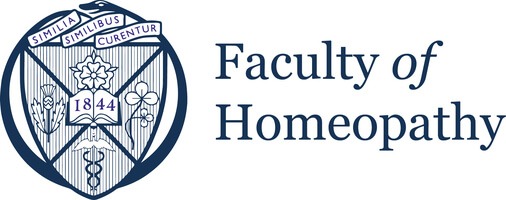Vitamin D also known as the "sunshine vitamin" is composed of two molecules, Cholecalciferol also known as Vitamin D3, and Ergocalciferol which is also referred to as Vitamin D2.
Cholecalciferol is synthesized by UV light in the skin due to natural reaction that occurs when the sun's ultraviolet rays act on the oils of the skin to produce the vitamin, which is then absorbed into the body. Due to the negative effects of UV rays; many foods such as dairy products, oil, cereal and bread are now enriched with Vitamin D.
Ergocalciferol is the form of Vitamin D extracted from plants which have been exposed to and absorb UV light.
Once ingested Vitamin D is metabolized by the liver, and then hydroxylated in the kidneys to produce the most active form, to facilitate the absorption of phosphate and calcium, mineralization of the skeleton and extracellular homeostasis with the help of parathyroid hormones.
One of the main functions of Vitamin D is to help absorb calcium and phosphorus from the intestinal tract. Without Vitamin D, children won't grow in height and their bones and teeth do not calcify as they should. Another function of the sunshine vitamin is the maintenance of the organs. Vitamin D is essential for normal heart action, blood clotting, and a stable nervous system. Researchers have also discovered that Vitamin D affects the acidity of the gastric juice produced in the stomach, preventing ulcers.
Vitamin D's chemical structure and actions in the body make it seem more like a hormone (or hormone precursor, also called a "prehormone") than a vitamin. When converted into its activated form, vitamin D becomes the most potent steroid hormone in your body,. This means that vitamin D has nearly unparalleled importance in maintaining a well-functioning, healthy body.
Vitamin D can also help to:
As we enter autumn and the days start to get shorter and the weather turns now is a good time to have your vitamin D levels checked by a simple blood test at our holistic clinic in London.
If your vitamin D levels are low, you may have bone pain and muscle weakness. But, often the symptoms of low levels of vitamin D are very subtle. And even without any clear symptoms, low vitamin D can badly affect your health in different ways
In a growing child, the lack of vitamin D creates a situation where the bones cannot withstand the stress of weight. The leg bones begin to bow outwards. The skull bones soften. A spinal curvature develops. The wrist, knee, and ankle joints enlarge. The muscles don't develop and there's a nervousness that cannot be relieved. This becomes a bone disorder called rickets.
In a growing infant, lack of vitamin D causes problems with tooth eruption and the teeth do not line up correctly.
In an adult, vitamin D deficiency is called osteomalacia. Vitamin D intake strengthens the teeth, preventing tooth decay and inflammation of the gums and tooth sockets.
Tetany, uncontrollable spasms in muscles, also results with a vitamin D deficiency accompanied by numbness and tingling.
A vitamin D deficiency may also cause near sightedness.
Various studies have found a connection of colon, pancreatic, ovarian, prostate and breast cancer with vitamin D deficiency.
Recent research shows that vitamin D deficiency increases the risk of infections, especially for tuberculosis, flu and pneumonia. Low levels also increase risk of peripheral artery disease.
Other symptoms might include fatique. mood changes. depression, pre menstrual tension, hair loss
If you can get enough sun on your skin as described above, you really do not have to worry about getting more vitamin D from food and supplements such as oral multivitamins or vitamin drips.
On the other hand, food and supplements can provide a healthy dose of vitamin D if you have any (or a combination) of the following risk factors for low vitamin D:
There is conflict information online about how many units of vitamin D should you aimper day.
According to the NHS the doses of vitamin D necessary are:
Children from the age of 1 year and adults need 10 micrograms of vitamin D a day. This includes pregnant and breastfeeding women, and people at risk of vitamin D deficiency.
Babies up to the age of 1 year need 8.5 to 10 micrograms of vitamin D a day.
A microgram is 1,000 times smaller than a milligram (mg). The word microgram is sometimes written with the Greek symbol μ followed by the letter g (μg).
Sometimes the amount of vitamin D is expressed as International Units (IU). 1 microgram of vitamin D is equal to 40 IU. So 10 micrograms of vitamin D is equal to 400 IU.
If you get vitamin D from supplements, keep in mind that unit for unit, cholecalciferol (vitamin D3) is better used by your body than ergocalciferol (vitamin D2).
In general, vitamin D3 is about 3 times more powerful than vitamin D2.
Even though the majority of Vitamin D is formed by exposing the skin to sunlight, there are some foods that naturally contain quantities of Vitamin D.
In the UK, cows' milk is generally not a good source of vitamin D because it is not fortified, as it is in some other countries.
If you have trouble getting enough Vitamin D from food sources, you may need vitamin D supplementation such as vitamin drips. If you suspect you might be suffer from low levels, we can investigate your vitamin D status by performing any of several tests.
You cannot overdose on vitamin D through exposure to sunlight but Vitamin D overdose happens most often when someone gets plenty of sun exposure, enjoys foods that contain high amounts of Vitamin D, and exceeds the recommended dosage with Vitamin D supplements.
If you're taking a quality multivitamin and getting enough sunshine, you may not need to take additional vitamins at all.
Doubling up on supplements of any kind may lead to vitamin d toxicity, particularly with vitamins that are stored in the body. In healthy adults, taking more than 40,000 IU of Vitamin D can cause toxicity after several months.
Vitamin D is one of the fat-soluble vitamins, along with Vitamin A, E and K. This means it will dissolve in fat but not water. Once your body absorbs Vitamin D, it stores it in your liver and your fatty tissues. Fat-soluble vitamins can be stored in your body for up to six months.
Vitamin D overdose causes something called hypercalcemia, or too much calcium in the blood. If hypercalcemia is not treated, it results in excess deposits of calcium in soft tissues and organs such as the kidneys, liver, stomach, lungs and heart, causing pain and even organ damage.
Taking excessive amounts of Vitamin D can result in side effects commonly beginning with a loss of appetite, nausea and vomiting. These are often followed by itching, weakness, insomnia, nervousness, general depression, excessive urination, excessive thirst, and in extreme cases, renal failure. Other symptoms of Vitamin D overdose include abnormal bone growth, diarrhoea, irritability, weight loss, and severe depression.
People with certain medical conditions like hyperparathyroidism are more sensitive to Vitamin D and are more prone to develop hypercalcemia if they get too much Vitamin D.
Maternal hypercalcemia during pregnancy can increase sensitivity for the unborn child. This could lead to tragic consequences. Pregnant or breastfeeding women therefore should consult a healthcare professional before taking a Vitamin D supplement.
Supplementation with vitamin D includes oral vitamins or vitamins administered through an iv drip.

Consultant in General Internal Medicine (GMC reg. number: 7541548) and Specialist in Complementary Cancer Care
MBBS, MRCIM (Spain), MSc Homeopathy, MFHom, Master practitioner in Ericksonian Hypnotherapy and Neurolinguistic Programming, MSc in Nutrition
Integrated medicine Doctor and Holistic Medicine Practitioner



